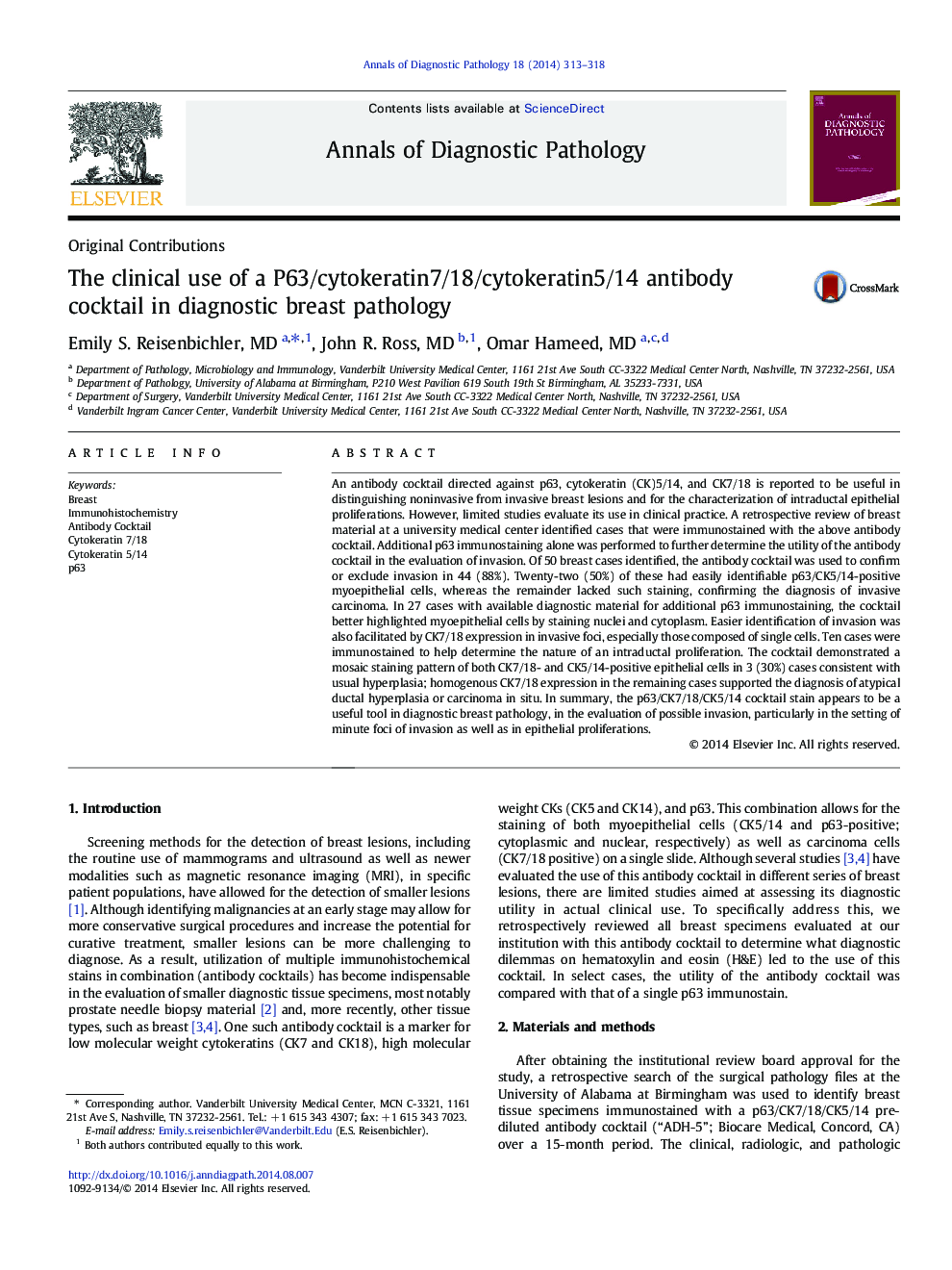| Article ID | Journal | Published Year | Pages | File Type |
|---|---|---|---|---|
| 6214963 | Annals of Diagnostic Pathology | 2014 | 6 Pages |
An antibody cocktail directed against p63, cytokeratin (CK)5/14, and CK7/18 is reported to be useful in distinguishing noninvasive from invasive breast lesions and for the characterization of intraductal epithelial proliferations. However, limited studies evaluate its use in clinical practice. A retrospective review of breast material at a university medical center identified cases that were immunostained with the above antibody cocktail. Additional p63 immunostaining alone was performed to further determine the utility of the antibody cocktail in the evaluation of invasion. Of 50 breast cases identified, the antibody cocktail was used to confirm or exclude invasion in 44 (88%). Twenty-two (50%) of these had easily identifiable p63/CK5/14-positive myoepithelial cells, whereas the remainder lacked such staining, confirming the diagnosis of invasive carcinoma. In 27 cases with available diagnostic material for additional p63 immunostaining, the cocktail better highlighted myoepithelial cells by staining nuclei and cytoplasm. Easier identification of invasion was also facilitated by CK7/18 expression in invasive foci, especially those composed of single cells. Ten cases were immunostained to help determine the nature of an intraductal proliferation. The cocktail demonstrated a mosaic staining pattern of both CK7/18- and CK5/14-positive epithelial cells in 3 (30%) cases consistent with usual hyperplasia; homogenous CK7/18 expression in the remaining cases supported the diagnosis of atypical ductal hyperplasia or carcinoma in situ. In summary, the p63/CK7/18/CK5/14 cocktail stain appears to be a useful tool in diagnostic breast pathology, in the evaluation of possible invasion, particularly in the setting of minute foci of invasion as well as in epithelial proliferations.
